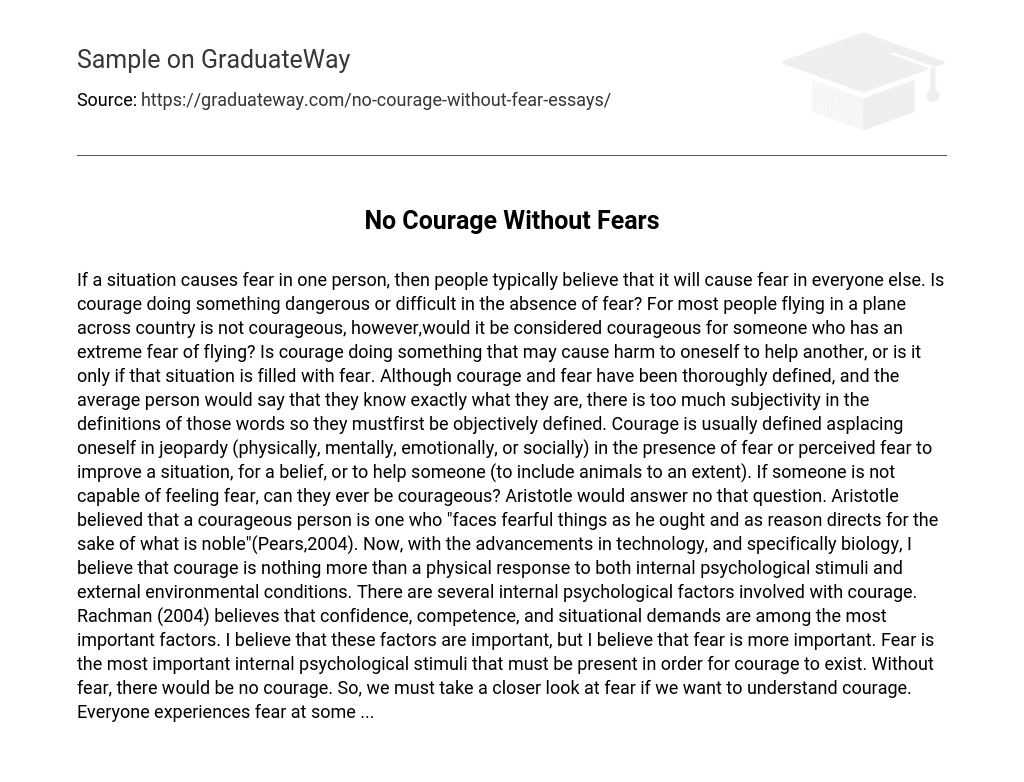If a situation induces fear in one individual, it is generally assumed that it will elicit fear in others as well. Can courage be defined as taking on a dangerous or challenging task without feeling any fear? While most people do not consider flying across the country as an act of courage, would it be deemed courageous for someone with an intense fear of flying? Is courage about undertaking actions that may harm oneself in order to assist others, or is it solely contingent upon the presence of fear in that particular situation? Despite the extensive definitions and the general understanding of courage and fear, there is a significant amount of subjectivity involved in defining these words, necessitating an objective definition.
Courage is often defined as placing oneself in jeopardy – physically, mentally, emotionally, or socially – in the presence of fear or perceived fear, for the purpose of improving a situation, standing by a belief, or aiding another individual (including animals to some extent). The question arises: if an individual is incapable of feeling fear, can they still exhibit courage? According to Aristotle, the answer to this question is no. Aristotle posits that a courageous person is someone who “faces fearful things as they should and as reason dictates, for the sake of what is noble” (Pears, 2004). However, with the technological advancements and specifically the progress of biology, I contend that courage is merely a physical response to both internal psychological stimuli and external environmental conditions. Courage involves several psychological factors such as confidence, competence, and situational demands (Rachman, 2004).
While I acknowledge the significance of these factors, I argue that fear holds greater importance. Fear is the primary psychological stimulus required for courage to emerge. Without fear, courage would cease to exist. Therefore, a deeper examination of fear is essential for comprehending courage. Each individual encounters fear at some point in their lives…





